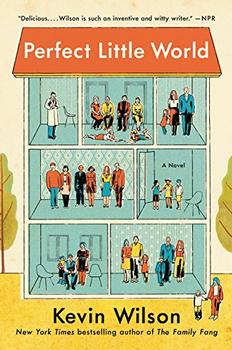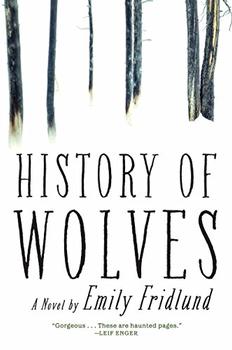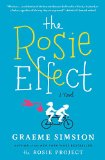Summary | Excerpt | Reviews | Beyond the book | Read-Alikes | Genres & Themes | Author Bio

It might be the beginning of a tragic story: Izzy Poole falls in love with her mentally unstable high school art teacher. They have an affair, she becomes pregnant, and he commits suicide. But Kevin Wilson's Perfect Little World moves beyond the seemingly narrow confines of this premise.
With a recommendation by the art teacher's wealthy family, Izzy and her unborn child are chosen to join nine pregnant couples living in a Tennessee compound to take part in Dr. Preston Grind's "Infinite Family Project." The participants of the utopian "Project" are meant to raise their children collectively for ten years, with no one permitted any favoritism toward their own offspring. The littles ones sleep in a nursery together, with parents and clinical researchers rotating in and out to supervise. They are taught to view the other children as siblings, and parents as surrogates, one big happy "Family." Can such an experiment succeed? Dr. Grind is willfully—perhaps blindly—optimistic
The author shifts perspectives between Izzy and Dr. Grind to provide a glimpse of their inner lives. Dr. Grind's child psychologist parents raised him using the "Constant Friction Method," a system they devised to inure him to the unpredictability of the world. As an example of this strategy, young Preston was given a puppy, only to have it taken away two weeks later with no explanation, and, at another time, fed brownies laced with pot. As if this weren't bad enough, Dr. Grind's parents went on to commit suicide (perhaps a blessing in disguise) and then his own wife and child were killed in a car accident.
Izzy, for her part, is a remarkable young woman, but suitably realistic about her situation. Her mother is dead too and her father's neglect have made her wise beyond her years. When we meet her, she's an expert hand working the local barbecue restaurant's pig-smoker. She is deep, but down-to-earth. For art school Izzy creates an elaborate wood-carving and printing project centered around Faulkner's "A Rose for Emily," a story that likely reminds her of her once reclusive mentally ill mother and all that Izzy herself would like to escape. Izzy is also deadpan funny. When her wealthy, doomed teacher/boyfriend gives her a fancy ring, she remarks, "My grandmother, on both sides, married a farmer, sewed her own clothing, and died with the exact same amount of money she started with. Even if you go a dozen generations back, I don't come from any kind of family that would own this ring."
When the "Project" seems doomed to fail, as most communal living situations do, it is not a failure of ideology or practice, there is no major scandal or tragedy, simply the unpredictability of human behavior stubbornly asserting itself. This is the only aspect of the story that is remotely realistic, the rupture in the Project is a well-crafted narrative arc. Petty human squabbles and jealousies are much more plausible than the creation of a coherent family unit out of 19 strangers and their children. And it is no small irony that dealing with the Family's issues is exactly the type of situation that Dr. Grind's parents thought they were preparing him for.
The novel drags a bit in the middle, interactions and experiments occur at the Project that have no bearing on the plot, Izzy goes to art school and meets a boy and realizes she is much too mature for him, parents bicker and kiss people who are not their partners, the children are subjected to benign experiments, and so forth, with nothing of high stakes happening. As the Project begins to go off the rails, however, Wilson's narrative train gets back on track.
Both Dr. Grind and Izzy refuse to let their tragic pasts define them, striving ever forward, and trying to will their way into happy futures by plugging the holes in the Project's sinking ship. The irony is, they don't need the Project in order to be happy, and the ten children whose happiness all this is ostensibly being done for don't need it either. Dr. Grind and Izzy should know this more than anyone, being the relatively well-adjusted adults who grew out of very unhappy childhoods. Readers who do not share Kevin Wilson's sunny worldview may find the story's resolution a bit too perfect, but Perfect Little World is an opportunity to consider what "family" means and how just one right person can make up for a world of past pain.
![]() This review was originally published in The BookBrowse Review in February 2017, and has been updated for the
November 2017 edition.
Click here to go to this issue.
This review was originally published in The BookBrowse Review in February 2017, and has been updated for the
November 2017 edition.
Click here to go to this issue.

If you liked Perfect Little World, try these:

by Emily Fridlund
Published 2017
Winner of the McGinnis-Ritchie award for its first chapter, Emily Fridlund's propulsive and gorgeously written History of Wolves introduces a new writer of enormous range and talent.

by Graeme Simsion
Published 2015
The highly anticipated sequel to the New York Times bestselling novel The Rosie Project, starring the same extraordinary couple now living in New York and unexpectedly expecting their first child. Get ready to fall in love all over again.
Your guide toexceptional books
BookBrowse seeks out and recommends the best in contemporary fiction and nonfiction—books that not only engage and entertain but also deepen our understanding of ourselves and the world around us.